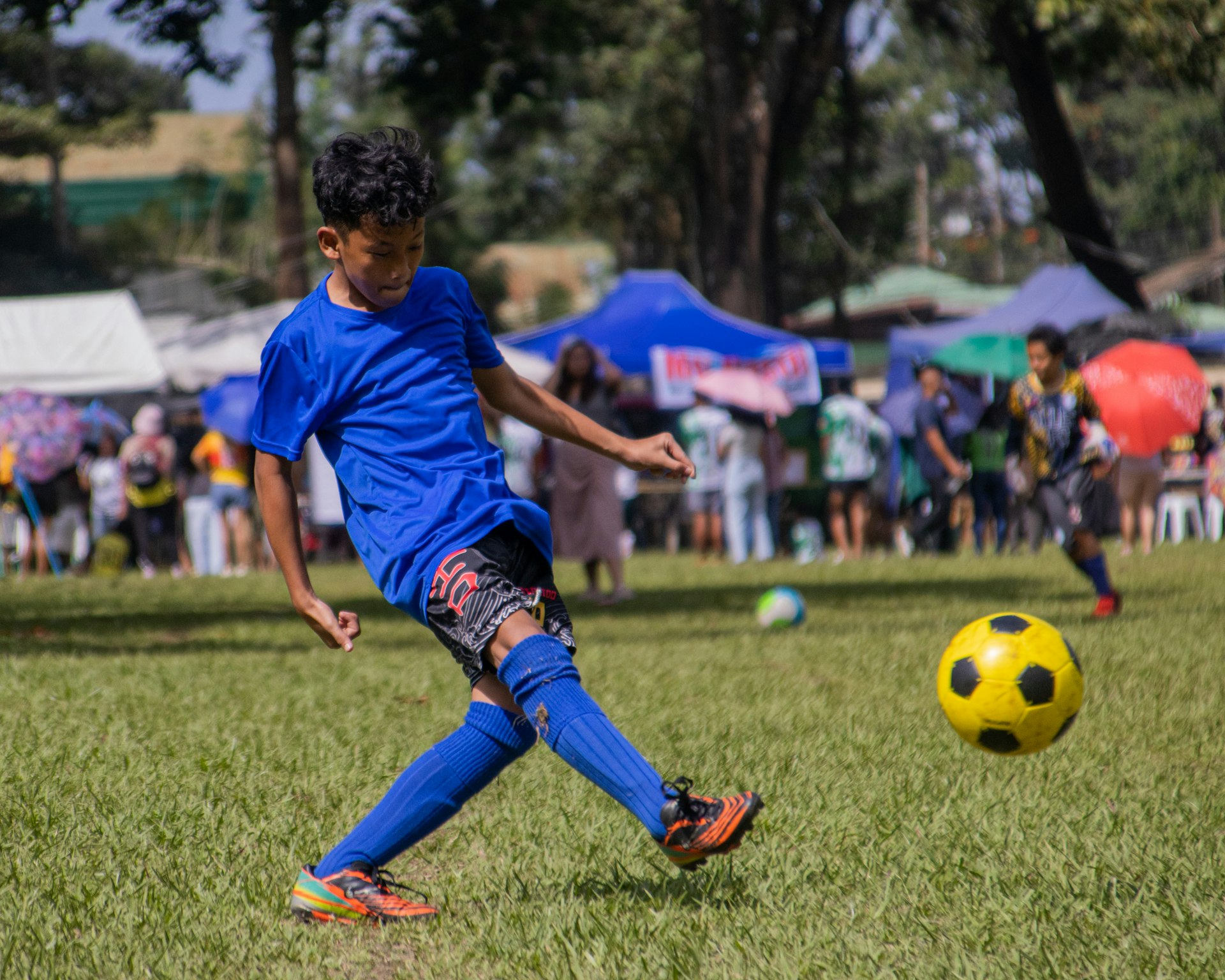Advancing Mental Health Awareness in Professional Athletes: Challenges, Strategies, and Support

Photo by Maurice DT on Unsplash
Introduction: The Critical Importance of Mental Health in Professional Sports
Mental health has become a pivotal topic in the world of professional athletics, with increasing recognition of its direct impact on performance, team cohesion, and long-term well-being. Despite the glamorous image often associated with elite athletes, the reality is that many face significant psychological pressures and unique mental health challenges that can affect every aspect of their lives. A recent meta-analysis found that 34% of current athletes and 26% of former athletes exhibit symptoms related to anxiety and depression, underscoring the scale of the issue [1] . This article explores these challenges, examines real-world examples, and provides actionable guidance for athletes, coaches, and sports organizations seeking to foster better mental health awareness and support.
Understanding Mental Health Challenges Among Professional Athletes
Professional athletes are subjected to intense scrutiny, high expectations, and relentless pressure to perform. These stressors can manifest as anxiety, depression, and burnout. Studies indicate that athletes are just as likely-or even more likely-than the general population to struggle with depression [2] . The causes are multi-faceted:
- Performance Pressure: The expectation to consistently deliver top results can lead to chronic stress and performance anxiety.
- Injury and Recovery: Physical injuries are common in sports, and their psychological impact can be profound, often resulting in frustration, helplessness, and depressive symptoms.
- Public Scrutiny: Athletes’ actions are often dissected in the media and online, amplifying stress and potential self-doubt.
- Transition and Retirement: Many athletes experience an identity crisis and increased mental health issues when transitioning out of sports or facing retirement [2] .
- Body Image and Eating Disorders: Maintaining a specific physique or weight can contribute to disordered eating, especially in sports with aesthetic or weight-class components [1] .
Recent data reveals that 60% of youth athletes struggle with mental health challenges during their careers, and 91% of high school athletes report experiencing sports-related stress [1] . These statistics highlight the urgent need for comprehensive mental health support at every level of sport.
Breaking the Stigma: High-Profile Athletes Leading the Conversation
The stigma surrounding mental health in sports has long discouraged athletes from seeking help. However, in recent years, several high-profile athletes-including Michael Phelps and Serena Williams-have shared their personal struggles publicly. Their openness has helped normalize conversations about mental health, encouraging others to seek support [2] .
By sharing their experiences, these athletes demonstrate that mental health challenges are not a sign of weakness but a common aspect of the human experience-even among those at the pinnacle of physical achievement. This trend is fostering greater empathy and understanding within the sports community.
The Impact of Mental Health on Athletic Performance
Mental well-being is directly linked to athletic performance. Athletes grappling with mental health issues may experience:
- Reduced Focus and Motivation: Anxiety and depression can sap an athlete’s motivation and ability to concentrate during training and competition [3] .
- Increased Injury Risk: Poor mental health can lead to lapses in judgment, slower reaction times, and higher susceptibility to physical injuries [3] .
- Team Dynamics: Emotional struggles can spill over into team relationships, affecting communication, morale, and overall performance.
Addressing mental health proactively can enhance performance, build resilience, and contribute to a healthier team culture.
Actionable Strategies for Promoting Mental Health Awareness
Sports organizations, coaches, and athletes themselves can implement a variety of strategies to promote mental well-being:

Photo by Quino Al on Unsplash
- Education and Training: Provide regular mental health education sessions for athletes, coaches, and staff to recognize signs of distress and understand available resources.
- Access to Professionals: Facilitate access to licensed mental health professionals, such as sports psychologists and counselors. Many collegiate and professional organizations now employ mental health specialists to support athletes [3] .
- Create Supportive Environments: Foster a team culture where discussing mental health is normalized, and seeking help is viewed as a strength rather than a liability.
- Confidentiality Measures: Ensure that athletes can access support without fear of judgment or career repercussions.
- Peer Support Programs: Encourage mentorship and peer support networks to reduce isolation and stigma.
For individual athletes who wish to seek help, it is often possible to:
- Speak confidentially with a team doctor, athletic trainer, or sports psychologist.
- Contact national mental health organizations or hotlines for guidance and support.
- Leverage athlete-focused mental health resources through official sports governing bodies. To find these, search for your sport’s official association and look for their mental health or athlete welfare sections.
Step-by-Step Guidance for Accessing Mental Health Support
If you are a professional athlete or part of a sports organization, here are detailed steps to access mental health resources:
- Identify Needs: Reflect on current stressors, emotional well-being, and any symptoms such as anxiety, depression, or burnout.
- Reach Out: If you are part of a team, start by contacting your team’s medical or wellness staff. If you are an independent athlete, consider reaching out to a licensed mental health professional with experience in sports psychology.
- Utilize Official Channels: Many professional sports leagues and athlete unions have dedicated mental health support programs. Check your league or union’s official website for specific resources or contact information.
- Seek Confidential Support: If privacy is a concern, national organizations such as the National Alliance on Mental Illness (NAMI) or the American Psychological Association (APA) provide confidential support and referrals. You can visit their official websites for more information.
- Advocate for Change: If you notice gaps in available support, communicate your needs to team leadership or union representatives to advocate for expanded resources.
For those outside the professional sports world seeking mental health services, you can search for “sports mental health support” or “find a sports psychologist” along with your location to identify licensed professionals in your area.
Potential Challenges and Solutions
Despite growing awareness, several barriers to accessing mental health care remain:
- Stigma: Fear of appearing weak or risking career advancement can deter athletes from seeking help. Team leaders can counteract this by openly supporting mental health initiatives and sharing educational materials.
- Lack of Resources: Not all teams or organizations have in-house mental health professionals. Athletes in these situations are encouraged to connect with external mental health organizations or consult their primary care providers for referrals.
- Confidentiality Concerns: Teams should implement strict privacy protocols to ensure athletes feel safe accessing support.
- Diverse Needs: Athletes come from varied backgrounds and may require culturally competent care. Organizations should strive to offer resources that reflect this diversity.
Alternative approaches include partnering with local mental health clinics, leveraging telehealth platforms, and encouraging peer-led support groups.
Key Takeaways and Moving Forward
Mental health awareness in professional athletes is not just a trend-it is a necessity for sustaining peak performance and overall life satisfaction. Continued education, open dialogue, and accessible resources are essential. By prioritizing mental health, athletes and sports organizations can foster resilience, reduce stigma, and create healthier environments for current and future generations.
References
MORE FROM dealdetectivepro.com













